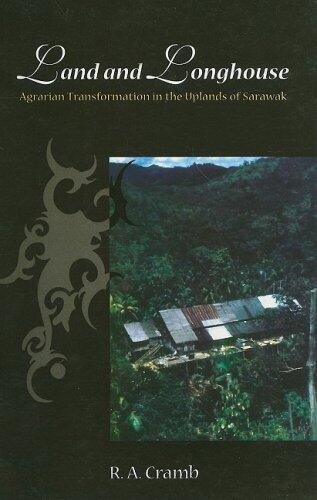
Land and Longhouse: Agrarian Transformation in the Uplands of Sarawak
por
R.A. Cramb
Aún sin calificaciones
Formato
Tapa blanda
Páginas
400
Idioma
Inglés
Publicado
Jul 31, 2007
Editorial
NIAS Press
Edición
First Edition
ISBN-10
8776940101
ISBN-13
9788776940102
Descripción
R. A. Cramb explores the complex socio-economic changes experienced by the Iban people of Sarawak, delving into the intricate relationship between land use, culture, and agrarian practices. The narrative illustrates how traditional agricultural systems have evolved under the pressures of colonial influence and modernization. The author meticulously details the transition from pre-colonial farming methods to contemporary practices, emphasizing the impact of external forces on local livelihoods and identities.
Through extensive research and vivid descriptions, the work sheds light on the resilience of the Iban in adapting to changing circumstances while preserving core aspects of their cultural heritage. Cramb paints a picture of the uplands as not just a geographic space but a vital environment shaped by the people who inhabit it. His examination reveals the intricate balance between sustaining traditional ways of life and engaging with new agricultural innovations.
The book further investigates the broader implications of agrarian transformation in Southeast Asia, highlighting how these changes resonate beyond local boundaries. Cramb's insights delve into themes of ecological sustainability, cultural identity, and economic development, inviting readers to reflect on the intertwined fates of people and land in the region.
Overall, readers are offered a comprehensive view of the Iban's journey through agrarian change, framed within historical contexts and contemporary challenges. Cramb's thoughtful analysis serves as both a tribute to the Iban culture and a critical examination of the forces shaping rural livelihoods in the modern world.
Through extensive research and vivid descriptions, the work sheds light on the resilience of the Iban in adapting to changing circumstances while preserving core aspects of their cultural heritage. Cramb paints a picture of the uplands as not just a geographic space but a vital environment shaped by the people who inhabit it. His examination reveals the intricate balance between sustaining traditional ways of life and engaging with new agricultural innovations.
The book further investigates the broader implications of agrarian transformation in Southeast Asia, highlighting how these changes resonate beyond local boundaries. Cramb's insights delve into themes of ecological sustainability, cultural identity, and economic development, inviting readers to reflect on the intertwined fates of people and land in the region.
Overall, readers are offered a comprehensive view of the Iban's journey through agrarian change, framed within historical contexts and contemporary challenges. Cramb's thoughtful analysis serves as both a tribute to the Iban culture and a critical examination of the forces shaping rural livelihoods in the modern world.
Reseñas
No hay reseñas aún
Sé el primero en reseñar este libro y compartir tus pensamientos
Añadir Primera ReseñaRegistro de lectura
No se encontraron registros de lectura
Empieza a rastrear tu progreso de lectura para ver los registros aquí
Agrega tu primer registro de lecturaNotas
Registro de transacciones
No se encontraron registros de transacciones
Empieza a rastrear tus transacciones de libros para ver los registros aquí
Agrega tu primer registro de transacciones